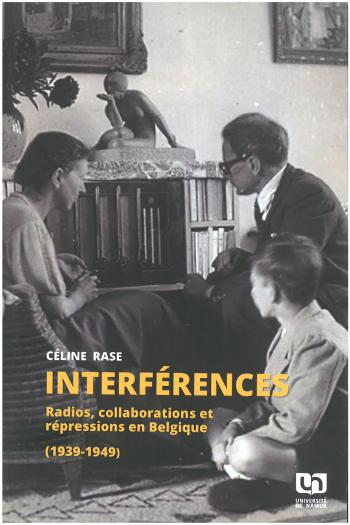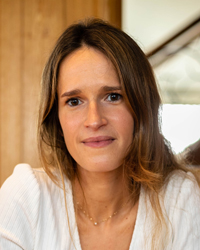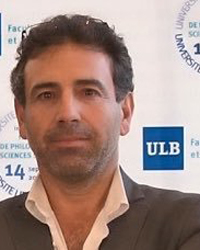Interférences : Radios, collaborations et répressions en Belgique (1939-1949)
CegeSoma Public History Meetings (2021-3)

Conference-debate (in French) with Céline Rase (UNamur) as guest speaker.

Céline Rase is a doctor of history at the University of Namur and holds a master's degree in journalism from UCLouvain. Interférences: Radios, collaborations et répressions en Belgique (1939-1949) is the publication resulting from her PhD thesis defended in 2015. It brings together two of her favorite subjects, the media and the history of the Second World War.
After four years spent in the Communication Department of the FNRS, she returned to the University of Namur where she is in charge of the course Questions d'histoire de l'époque contemporaine devoted to the theme of collaboration and post-war repression. In the framework of a post-doctorate, she is also leading a project of scientific valorization and popularization centered around the little-known figure of the biologist Hector Lebrun. This research project is associated with the realization of an exhibition and the production of podcasts that question the constant evolution of scientific knowledge, practices and positions.
 A graduate of the Université libre de Bruxelles and the École des hautes études en sciences sociales (Paris), with a doctorate in philosophy and literature (1993), Jean-Philippe Schreiber is a professor at the ULB where he teaches the history and law of religions.
A graduate of the Université libre de Bruxelles and the École des hautes études en sciences sociales (Paris), with a doctorate in philosophy and literature (1993), Jean-Philippe Schreiber is a professor at the ULB where he teaches the history and law of religions.Director of research at the Fonds national de la Recherche scientifique, he directed the Centre interdisciplinaire d'étude des religions et de laïcité from 2003 to 2007. His research and publications are devoted to the history of modern and contemporary Judaism, the history of immigration, anti-Masonicism, the relationship between memory and history, and Church/State relations.